What İs A Donkey And İts Origins?
A donkey, also known as an ass, is a domesticated mammal which belongs to the horse family. These hardworking animals have been used for transportation, carrying goods and people, and field work for thousands of years. The origins of the donkey can be traced back to Africa and Asia, where they were first domesticated around 3000 BC.
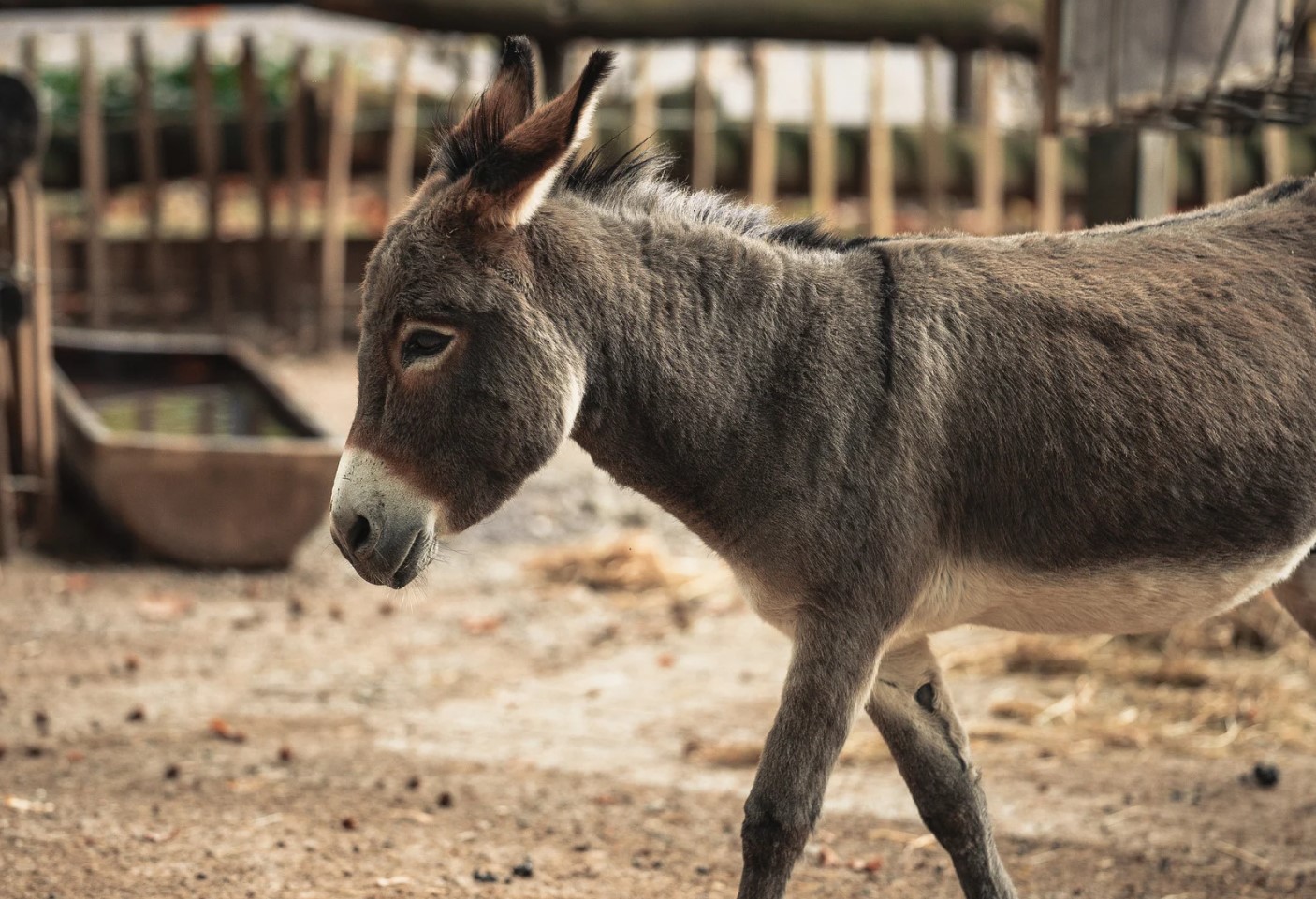
One interesting fact about donkeys is that they have a different number of chromosomes than horses, which means that they cannot interbreed. This makes them a distinct species, despite their physical similarities to horses. Another unique feature of donkeys is their large ears, which serve a practical purpose in regulating body temperature and enhancing their sense of hearing.
- In ancient times, donkeys were highly valued for their use in trade and transportation. They were used to carry goods and materials across long distances, and also played a key role in agriculture, helping farmers till their fields and harvest crops.
- Donkeys have also been used by militaries throughout history, as they are able to traverse rough terrain and carry supplies into areas where vehicles cannot go. During World War I, donkeys were used by soldiers in the trenches to transport supplies and equipment.
| Advantages of Donkeys |
|---|
| They are hardy and require less maintenance than horses |
| They are excellent at navigating difficult terrain thanks to their sure-footedness |
| They are highly intelligent and have an excellent memory |
| Donkeys can be trained for a wide variety of tasks, making them extremely versatile |
Despite their usefulness, donkeys are often subject to mistreatment and neglect, especially in parts of the world where they are viewed as “disposable” animals. However, organizations such as The Donkey Sanctuary are working to improve the welfare of these animals and raise awareness about their important role in society.
In conclusion, donkeys are fascinating creatures with a rich history and many unique features. Whether serving as transportation, working animals or beloved pets, they have proven to be an indispensable part of human society for thousands of years.
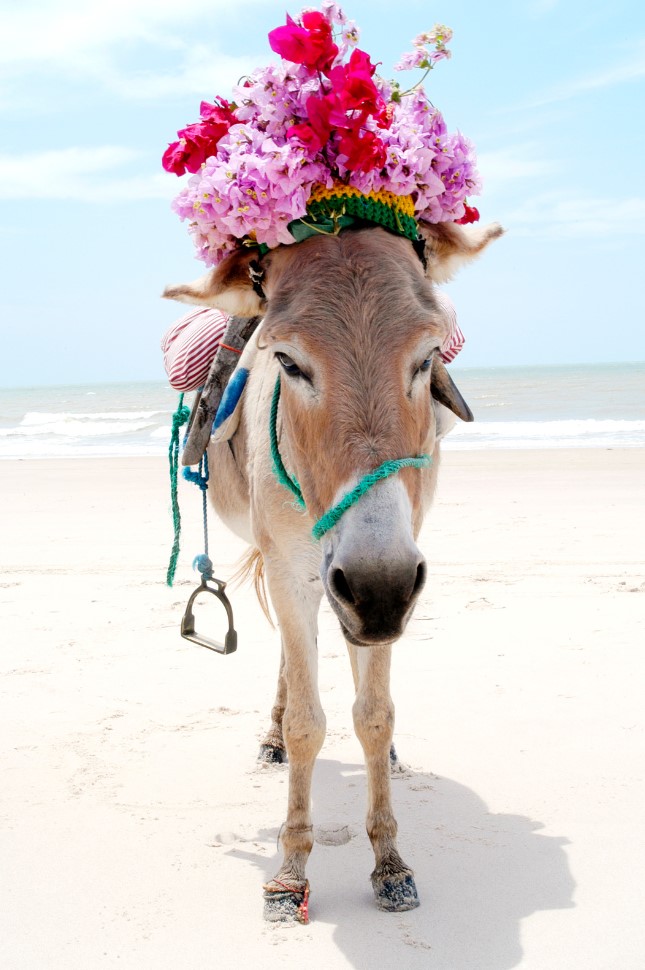
Different Types Of Donkeys Found Worldwide
If you’re an animal lover or simply fascinated with these four-legged creatures, donkeys definitely are a must-see! While donkeys may all look alike to the untrained eye, there are actually several types of donkeys found around the world.
Standard Donkey: As the most common type, this breed is often known as the American or Wild Burro. They’re typically smaller in size, usually measuring between 32 to 56 inches in height.
Miniature Donkey: As the name suggests, this breed is much smaller in size compared to the standard breed. Don’t let their small size fool you, however, as they have been used for several agricultural purposes such as plowing fields and transporting goods.
Mammoth Donkey: Last but definitely not the least, the mammoth breed is the largest type of donkey. They can reach up to a height of 17 hands (68 inches) and weigh over 1,000 pounds! Due to their massive size, these donkeys are often used for breeding purposes to create large mules which can carry heavy loads.
- Another type of donkey is the Poitou. Native to France, this breed was almost extinct at one point, but has made a comeback in recent years with dedicated breeding programs.
- The Andalusian breed, on the other hand, is often known for their athletic abilities and beautiful coats. They’re typically smaller in size to the standard donkey and have a slender build.
- Finally, the Asinine Amiata is an Italian breed which is also on the verge of extinction. It’s named after the Amiata mountain range in Tuscany where they were first developed.
Donkeys, while often overlooked, play an important role in agriculture and transportation around the world. Each breed has its own unique traits and abilities, making them a fascinating animal to learn about and appreciate.
| Breed | Height | Weight |
|---|---|---|
| Standard | 32-56 inches | 500-1,000 pounds |
| Miniature | 26-36 inches | 150-450 pounds |
| Mammoth | Up to 68 inches | 1,000-1,600 pounds |
The Historical Significance Of Donkeys
Donkeys have played a significant role in human history, yet they often get overlooked and underestimated. These humble creatures have been used for transportation, agriculture, and even warfare. In fact, donkeys were essential in the development of many ancient civilizations, such as the Mesopotamians, Egyptians, and Greeks.
One of the primary reasons for the historical significance of donkeys is their ability to carry heavy loads. Their strong backs and sure-footedness made them ideal pack animals for people traveling long distances. This allowed for the expansion of trade networks and the spread of ideas and technologies across different cultures.
- Another important use of donkeys was in agriculture. These animals were often used to plow fields, carry water, and grind grain. Donkeys could work all day long without getting tired, which made them a valuable asset for farmers.
- Donkeys were also used in warfare throughout history. They were strong enough to carry warriors and their equipment, and they could navigate difficult terrain that horses couldn’t. Some of the most famous military leaders in history, such as Hannibal and Alexander the Great, relied heavily on their donkey armies.
Today, donkeys are still used for many of these same purposes, as well as for recreational activities like riding and petting zoos. However, their historical significance should not be forgotten. These animals played a crucial role in the development of human society, and their contributions should be recognized and appreciated.
| Advantages of using donkeys |
|---|
| Strong backs that can carry heavy loads |
| Ability to navigate difficult terrain |
| Can work all day without getting tired |
Donkeys may not be as glamorous or majestic as horses, but they have just as much historical significance and have been just as important to human society. Whether they’re carrying goods across the desert or plowing fields on a farm, donkeys have proven themselves to be valuable assets time and time again. So next time you see a donkey, remember to appreciate all that they’ve done for us throughout history.
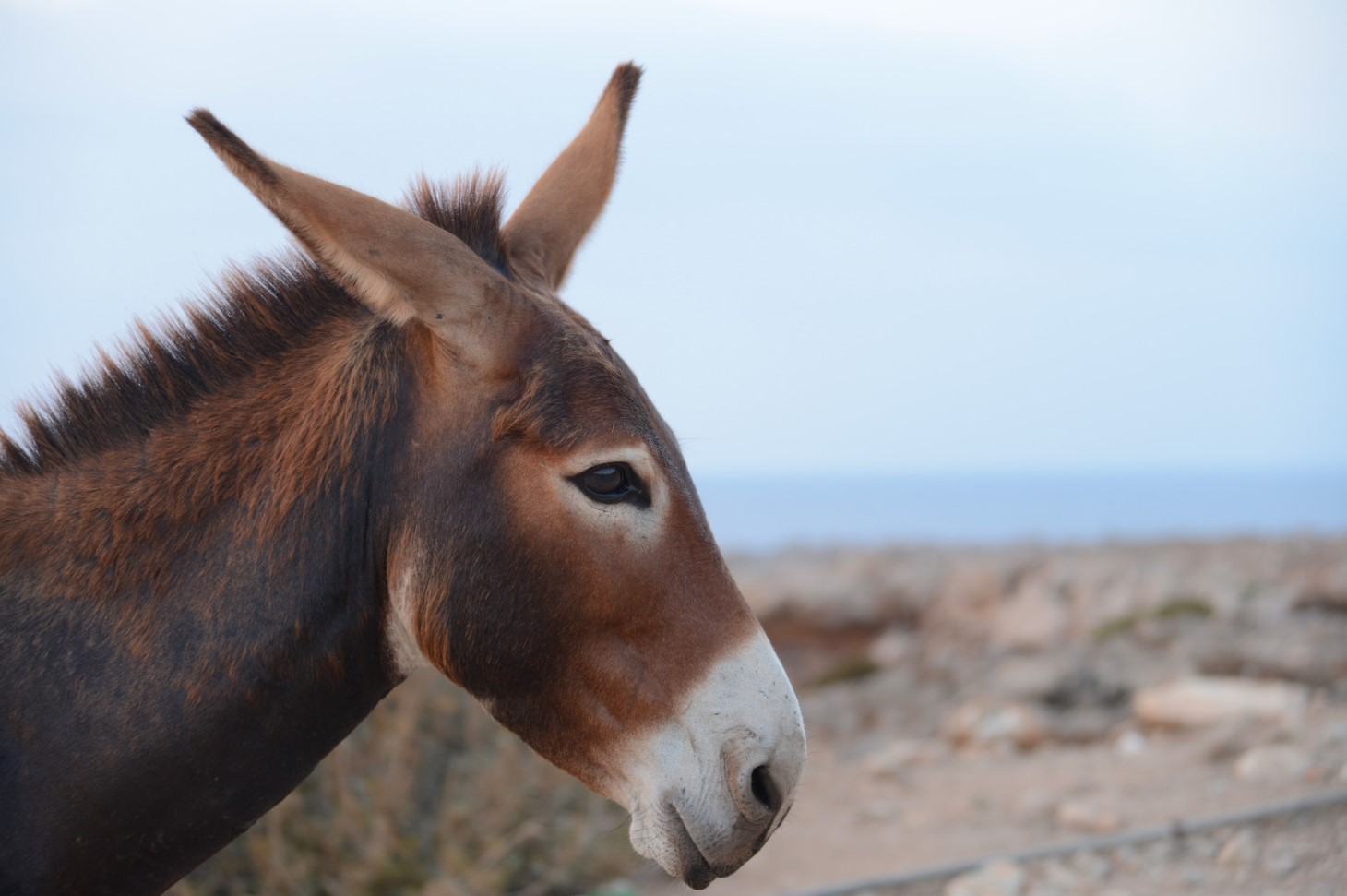
Role Of Donkeys İn Various Cultures And Civilizations
Donkeys have played a significant role in various cultures and civilizations throughout history. These hardworking creatures are known for their strength, stamina and loyalty, and they have been used for a variety of purposes, including transportation, agriculture and warfare.
In ancient Egypt, donkeys were revered for their ability to traverse the desert terrain, and they were often used to transport goods and people across the country. They were also associated with the god Set, who was often depicted as a donkey or with a donkey’s head.
During the time of the Roman Empire, donkeys were used to transport goods and people across the vast empire. They were also used in agriculture, particularly in the production of olive oil and wine. In fact, the Roman poet Virgil praised the donkey for its ability to crush olives and grapes with its hooves.
- Donkeys were also used in warfare throughout history, particularly in the Middle Ages. They were used as pack animals, carrying weapons, food and other supplies to the front lines.
- Donkeys have played an important role in many religious traditions as well. In Christianity, donkeys are associated with the Nativity story, as Mary is said to have traveled to Bethlehem on a donkey.
- In Hinduism, the god Ganesha is often depicted riding a donkey. In Islam, donkeys are mentioned in the Quran as a symbol of humility and patience.
Today, donkeys are still widely used in many parts of the world for transportation, agriculture and other purposes. They are particularly important in developing countries, where they are often the only means of transportation available in rural areas.
| Country | Number of Donkeys |
|---|---|
| Ethiopia | 7.5 million |
| Mexico | 1.6 million |
| Morocco | 1.2 million |
| Egypt | 1 million |
| Sudan | 0.9 million |
The role of donkeys in various cultures and civilizations may have shifted over time, but their importance has never diminished. Their strength, loyalty and hardworking nature have made them a valuable asset to humans for thousands of years, and they continue to be an integral part of many societies today.
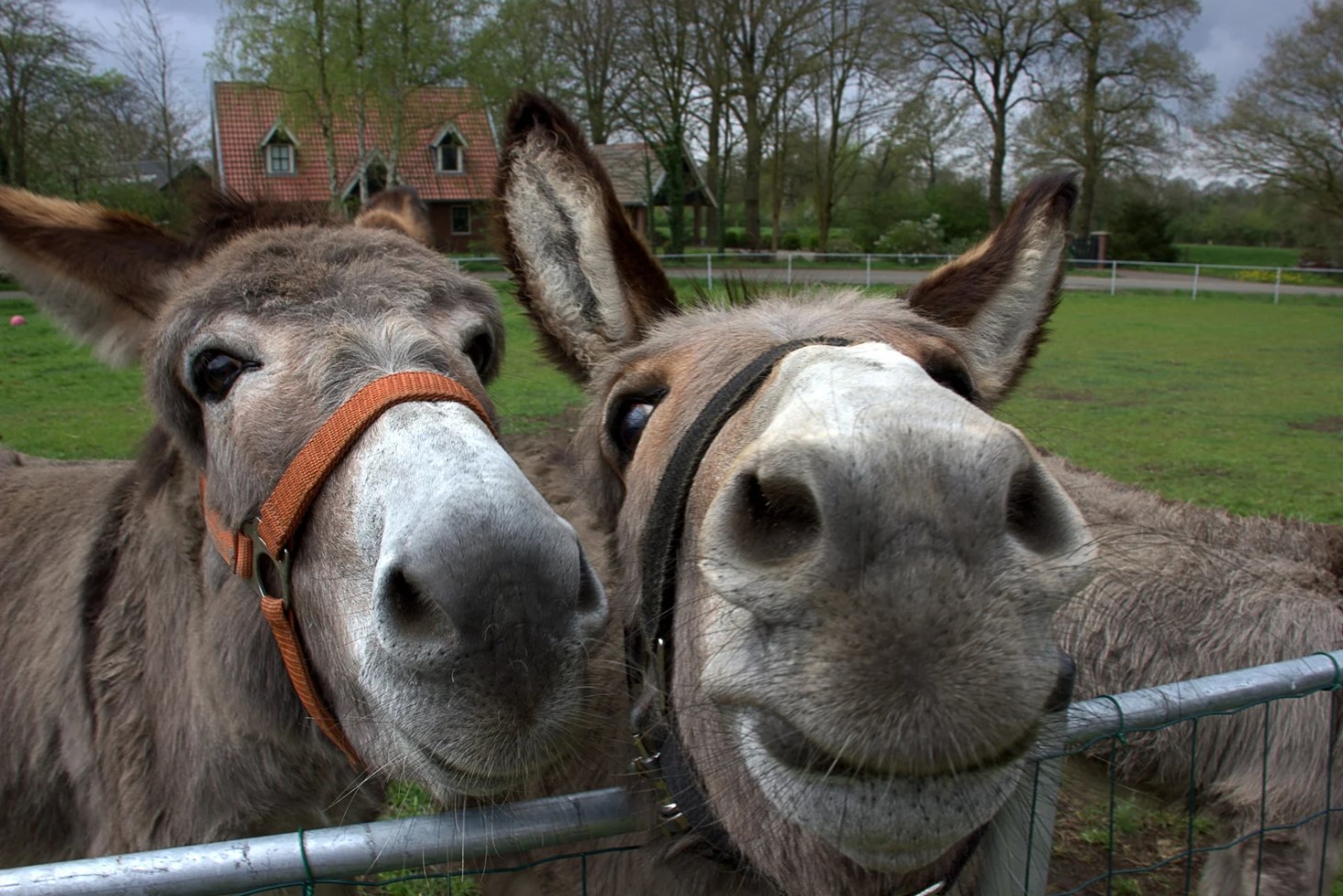
What Do Donkeys Eat And How Much?
Donkeys are fascinating creatures and are commonly found in different parts of the world. One may wonder what these hardy animals eat to survive in their natural habitats. Donkeys are omnivores; they eat both plants and meat. They can survive on very little feed and water, which makes them low-maintenance animals that are ideal for farmers and owners alike. In this blog post, we’ll dive into the details of what donkeys eat and how much they need to stay healthy.
Plants are the primary source of food for donkeys. This includes grass, hay, and different types of vegetation. Grass is the most common food source as it’s available in most outdoor areas. However, if grass or vegetation is scarce, the owners should supplement their diet with hay. Hay is dried up grass or alfalfa, which is rich in nutrients and helps to keep the digestive system of a donkey healthy.
Meat is not a significant part of a donkey’s diet, but they can eat it. In the wild, donkeys have been observed eating meat to meet their protein needs. However, owners should only provide high-quality protein sources, such as chicken, fish, or beef, and in moderation, as too much meat can lead to digestive problems. Therefore, providing plant-based food is more advisable.
| Food | Amount |
|---|---|
| Grass | One-third of their body weight |
| Hay | 2% of their body weight |
| Vegetables | Small quantities |
Donkeys require a certain amount of food to sustain their energy levels every day. The amount consumed depends on their weight, age, and activity level. A full-sized mature donkey will eat about one-third of its body weight in grass daily. If hay is its primary food source, then it should consume no more than 2% of its body weight because hay has higher nutritional value than grass. Vegetables can be provided too, but only in small amounts as an occasional treat.
In conclusion, donkeys are low-maintenance animals and don’t require a lot of food to stay healthy. They are adaptable creatures and can survive in extreme environments with limited resources. Providing them with a balanced diet of grass and hay will keep them healthy and strong. A balanced diet is crucial for their overall well-being as most of their diet is fibrous material, and their digestive system requires a specific balance of nutrients for proper function. Be sure to monitor their food intake to ensure they receive the proper amount of nutrition and are not overeating.
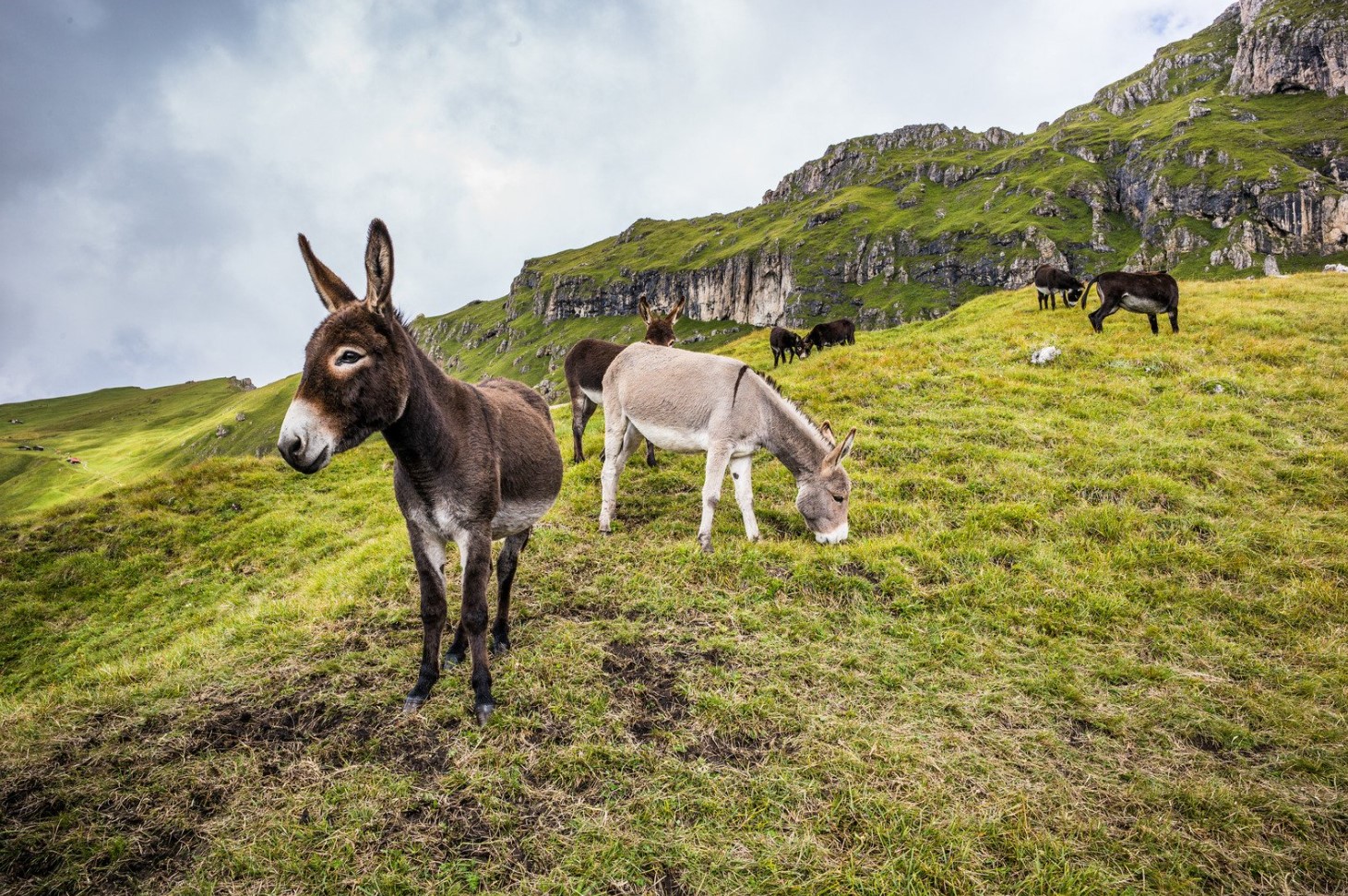
Donkey Behavior And Characteristics
A donkey is a domesticated animal closely related to the horse. Though it may not be as popular as the horse, the donkey is a versatile animal with its own distinct set of characteristics and behaviors. Known for its stubborn nature, the donkey is also incredibly intelligent and sociable.
One of the most distinct characteristics of the donkey is its long ears. Not only do they provide excellent hearing, but they also help to regulate the temperature of the animal’s body. Donkeys can also communicate through vocalizations and body language, with braying being one of their most recognizable sounds.
- Donkeys are also known for their pack animal abilities. They are able to carry heavy loads over long distances and are often used in farming and transportation.
- Though donkeys may initially seem difficult to work with, they can be trained just as easily as horses. Respecting their intelligence and individual personalities is key to building a strong relationship with them.
- Donkeys are also incredibly social animals and thrive in the company of other donkeys or even other species. In fact, it is recommended that they have a companion in order to prevent them from becoming lonely or anxious.
Whether you’re considering getting a donkey as a pet or simply want to learn more about these fascinating animals, understanding their behavior and characteristics is key to building a successful relationship with them.
| Donkey Behavior and Characteristics: | |
|---|---|
| Distinct Characteristics | Long ears, vocalizations, body language, pack animal abilities |
| Trainability | Easy to train, benefit from individualized training methods |
| Social Nature | Thrive in company, should have a companion |
How To Train Your Donkey?
Donkeys are faithful and intelligent animals, and can be perfect pets. However, it is essential to train them properly to ensure that they are well-behaved and amenable. Here are some tips on how to train your donkey and have a fulfilling life with it.
- Be patient: Donkeys are known for being stubborn, but they are also intelligent and loyal. They need time to understand your commands and develop a bond with you. Be patient with your donkey, do not rush things, and give it time to learn and adjust to its new surroundings.
- Use positive reinforcement: Reward your donkey with treats and encouragement every time it succeeds in a task. Positive reinforcement is a powerful technique to encourage desired behavior in animals.
- Teach basic commands: You need to teach your donkey basic commands, such as “halt,” “walk,” “back up” and “turn.” This will enable you to communicate with your donkey, and it will know what you expect from it.
- Train for riding: To ride your donkey, it is crucial to train it for specific tasks such as carrying a saddle, accepting a rider, and responding to rein commands. You must also consider the right size and fit of a saddle to ensure the comfort of your donkey.
Training your donkey requires consistency, patience, and a deep understanding of its behavior. Avoid using punishment-based techniques, as it can harm your donkey’s mental well-being and create trust issues. With the right approach, you can have a well-trained donkey that is both a pet and a companion.
| Do’s | Don’ts |
|---|---|
|
|
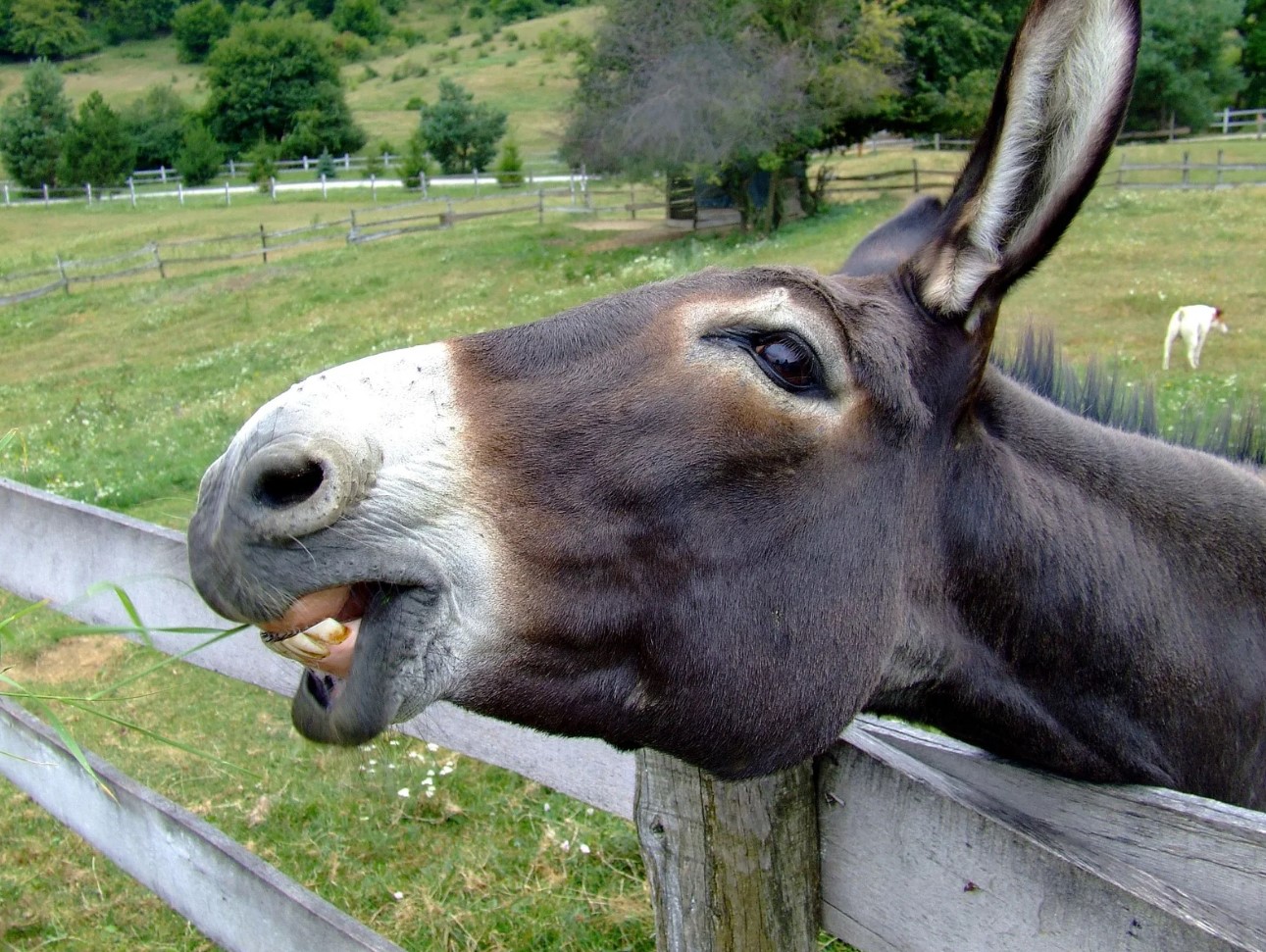
Donkeys As Work Animals
Donkeys may not be the first animal that comes to mind when thinking of work animals, but they have been used by humans for centuries to perform a variety of tasks. From carrying loads to plowing fields, donkeys have proven to be strong and versatile animals that can handle a lot of work.
- Carrying Loads
One of the most common uses for donkeys as work animals is carrying loads. Whether it’s carrying supplies to a remote location or hauling goods to market, donkeys are often used as pack animals. They have a natural ability to carry heavy loads and are able to navigate difficult terrain, making them incredibly useful in a variety of situations.
| Height at Shoulder | Weight | |
|---|---|---|
| Standard Donkey | 36-48 inches | 400-500 pounds |
| Mammoth Donkey | 54 inches or taller | 800-1,000 pounds |
- Plowing Fields
Donkeys have also been used as work animals in agriculture. They can be trained to plow fields and perform other farm work, making them an excellent alternative to traditional draft animals like horses and oxen. Because they are smaller and less expensive to feed than larger draft animals, donkeys are often a more cost-effective option for farmers.
- Caring for Donkeys
If you are considering using donkeys as work animals, it’s important to know how to care for them properly. Donkeys need plenty of exercise, a nutritious diet, and a clean and comfortable living space. Regular veterinary care is also important to keep your donkeys healthy and prevent any health issues from arising.
Overall, donkeys are excellent work animals that can perform a variety of tasks. From carrying loads to plowing fields, they are strong, versatile, and cost-effective. If you’re looking for a reliable and efficient work animal, donkeys may be the right choice for you.
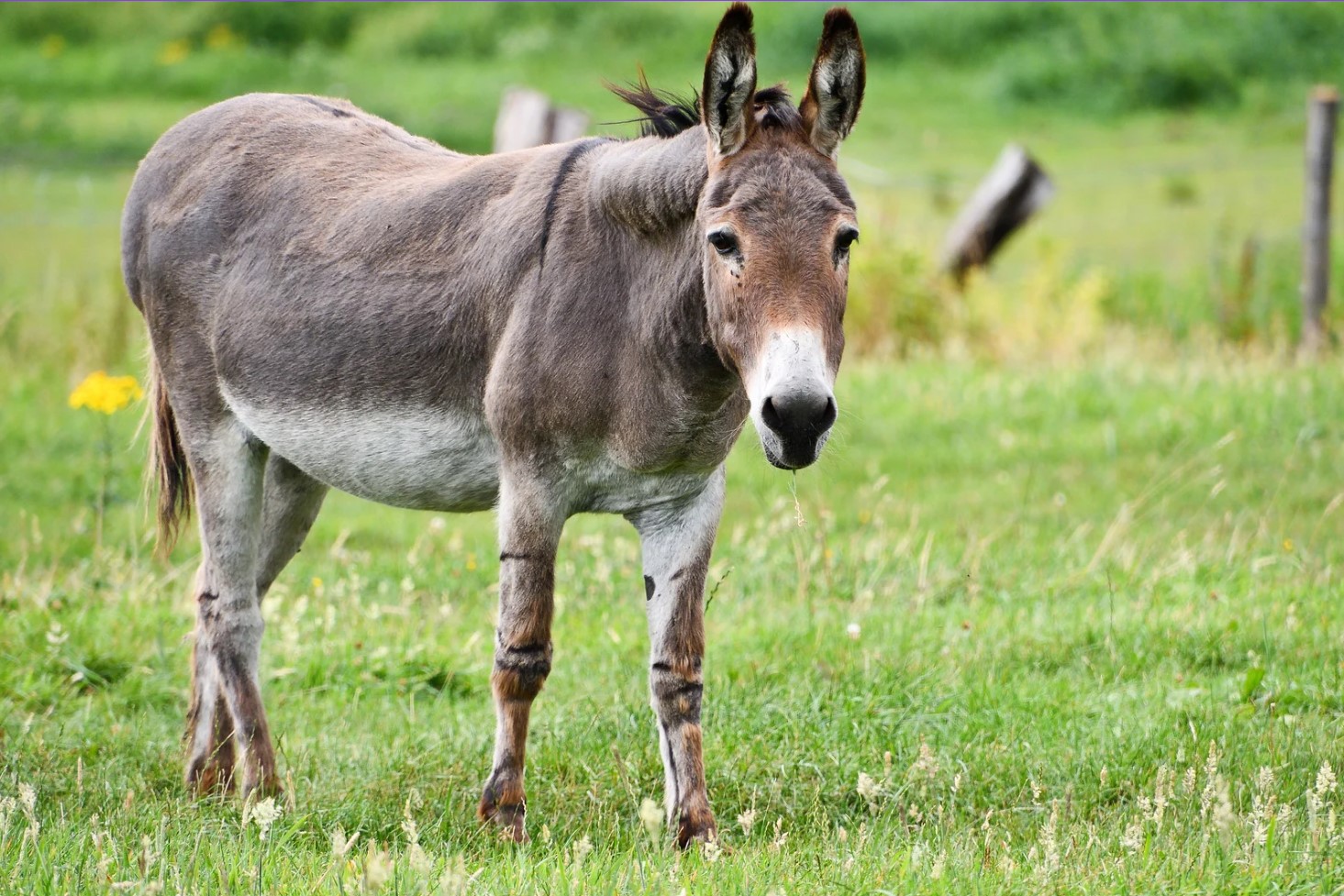
Donkeys As Pack Animals
Donkeys have been used as pack animals for centuries in many parts of the world. These sturdy and reliable animals are well-suited for carrying heavy loads over long distances. They are also low-maintenance and hardy, making them ideal for use in rugged terrain.
One of the main advantages of using donkeys as pack animals is their ability to navigate uneven terrain. Unlike horses, they are less likely to get their hooves caught in rocky terrain or stumble on steep mountain trails. They also have a sure-footedness that makes them less likely to slip or fall on muddy or slippery paths.
- Donkeys are also able to carry a significant amount of weight without getting tired quickly.
- They can carry as much as 25% to 30% of their body weight for extended periods.
- This makes them ideal for carrying supplies and equipment on long treks through remote wilderness areas.
Furthermore, donkeys are highly adaptable animals that can thrive in a variety of environments. They can tolerate extreme temperatures, from hot, arid deserts to cold, snowy mountains. They also require less food and water than most other pack animals, making them ideal for use in areas where resources are scarce.
| Benefits of Using Donkeys as Pack Animals |
|---|
| Well-suited for rugged terrain |
| Able to carry heavy loads over long distances |
| Can tolerate extreme temperatures |
| Require less food and water than other pack animals |
Overall, donkeys are a valuable asset for anyone who needs to transport heavy loads over long distances in rugged terrain. Their adaptability, low-maintenance, and hardiness make them a reliable choice for anyone looking for a pack animal that can get the job done.
Donkeys İn Therapy Or Assisted Animal Programs
Donkeys in Therapy or Assisted Animal Programs
Donkeys have long been revered as hardworking and reliable animals. But did you know that they also make great therapy animals? Many people find comfort in interacting with donkeys, which can be helpful in therapy sessions. Assisted animal programs that involve donkeys and other animals have been gaining popularity in recent years, as people have come to recognize the positive effects of animal-assisted therapy.
- One reason why donkeys are so effective in therapy is because they are very calm and gentle animals. They are not easily startled, and they are not aggressive like some other animals can be. This makes them ideal for interacting with people who might be nervous or anxious.
- Donkeys are also very social animals, and they enjoy being around people. They are very receptive to human emotions, which makes them great listeners. People who participate in therapy sessions with donkeys often find that they are able to open up and share their feelings more easily than they would in a traditional therapy setting.
Assisted animal programs that involve donkeys and other animals can be beneficial for a wide range of people. They are often used to help children with developmental disorders, as well as adults who are struggling with mental health issues. People who are recovering from physical injuries or illnesses can also benefit from interacting with donkeys, as the animals can provide a calming and reassuring presence.
| Benefits of Donkeys in Therapy and Assisted Animal Programs |
|---|
| Donkeys are calm and gentle animals. |
| They are social animals and enjoy being around people. |
| Donkeys are receptive to human emotions and make great listeners. |
| Assisted animal programs can be beneficial for children and adults with developmental and mental health disorders. |
| Donkeys can provide a calming and reassuring presence for people who are recovering from physical injuries or illnesses. |
Overall, there are many benefits to incorporating donkeys into therapy and assisted animal programs. These animals have a unique ability to connect with people and provide a sense of comfort and calm. If you are considering therapy, you may want to look into a program that involves donkeys or other animals.
Popular Donkey Breeds As Pets
Donkeys make great pets for a variety of reasons. They are friendly, intelligent, and playful animals that can provide a lot of joy and companionship. There are several different popular donkey breeds that are commonly kept as pets, each with their own unique characteristics and personality traits. In this blog post, we’ll take a closer look at some of the most popular donkey breeds for pet owners.
One of the most well-known donkey breeds is the American Mammoth. These animals are the largest breed of donkey and can weigh up to 1,000 pounds. Despite their size, they are known for their gentle nature and friendly disposition. Another popular breed is the Miniature Mediterranean, also known as the Mini Donkey. These animals are much smaller than their Mammoth counterparts, typically only reaching about 36 inches in height. They are playful and curious creatures that can make wonderful pets for people of all ages.
- Some other popular donkey breeds for pets include:
- Standard Donkeys
- Andalusian Donkeys
- Catalonian Donkeys
No matter which breed of donkey you choose to keep as a pet, it’s important to understand their needs and provide them with a safe and comfortable living environment. Donkeys are social animals, so they should always be kept in pairs or small groups. They also need access to fresh water and a balanced diet of hay, fruits, and vegetables. With proper care and attention, your pet donkey can be a loyal companion for many years to come.
| Donkey Breed | Height (in hands) | Weight (in pounds) |
|---|---|---|
| American Mammoth | 12-16 | 800-1,000 |
| Miniature Mediterranean | 6-9 | 200-350 |
| Standard Donkey | 9-14 | 400-600 |
| Andalusian Donkey | 10-13 | 400-500 |
| Catalonian Donkey | 12-14 | 600-800 |
Donkey Breeding And Reproduction
Donkey Breeding And Reproduction
Breeding of donkeys is a process that requires some understanding of reproductive dynamics. Donkeys are sturdy animals used for different purposes, including transportation of goods and human beings. With the right conditions in place, donkey breeding is a worthwhile venture.
- How Do Donkeys Reproduce?
- What Are the Gestation Period And Mating Habits of Donkeys?
In terms of reproduction, donkeys are close cousins to horses. Donkeys are seasonal breeders with a reproductive cycle that starts as early as spring and goes through to autumn. Female donkeys, also known as jennies, reach sexual maturity at around three years of age. The breeding process usually involves introducing a male donkey, known as a jack, to a jenny.
The gestation period for donkeys is 11 months, similar to horses. Once the jenny is pregnant, it is essential to monitor them closely, as they are at higher risk of developing complications during delivery due to the size of the foals. One of the main characteristics of donkey mating habits is their tendency to produce hybrid mules when mated with horses.
| Donkey Breeding Tips |
|---|
| 1. Keep the breeding area clean |
| 2. Ensure the donkeys have enough room to mate comfortably |
| 3. Monitor the mating process to prevent injury |
| 4. Provide enough food and water for the mating pair |
Successful breeding of donkeys requires some tips to keep the animals safe and healthy. Keeping the area clean is essential to reduce the risk of diseases and infections, and ensuring the animals have enough room to mate is crucial. Moreover, it is crucial to monitor the mating process to prevent injury to the animals. Providing enough food and water to the mating pair is also essential.
Finally, it is essential to ensure a reliable market for the offspring. Donkey breeding could lead to oversupply and a strain on the available resources. Therefore, it is smart to have an established market before venturing into donkey breeding.
Donkey Care And Maintenance
Donkeys have been popular domesticated animals for centuries, prized for their strength, endurance, and versatility. Whether you’re keeping them for work or as pets, it’s important to know the basics of donkey care and maintenance. This will help ensure that your donkeys receive the proper nutrition, medical care, and attention they need to live healthy and happy lives.
One of the most important parts of donkey care is providing them with adequate shelter. Donkeys have sensitive skin, so they need protection from harsh weather conditions like rain, snow, and sun. A sturdy barn or shelter with adequate ventilation is ideal. Additionally, donkeys need access to fresh water and high-quality hay or forage.
- Donkeys also need regular vaccinations and check-ups from a veterinarian. This will help protect them from common diseases like tetanus, rabies, and equine influenza.
- It’s also important to monitor your donkey’s weight and body condition. Donkeys are prone to obesity, which can lead to serious health problems like laminitis.
- In terms of maintenance, donkeys need regular hoof care, which includes trimming and cleaning. This helps prevent common foot problems like abscesses and thrush.
Donkeys are social animals, so they thrive when they have companionship. If you’re keeping a single donkey, consider adopting another one to keep them company. They’ll be able to keep each other entertained and happy.
| Breed | Origin | Size | Characteristics |
|---|---|---|---|
| Miniature Mediterranean | Mediterranean | Up to 36 inches tall | Gentle, affectionate, and easy to train |
| American Mammoth Jackstock | United States | 15 to 16 hands tall | Strong and sturdy, ideal for work |
| Andalusian | Spain | Up to 16 hands tall | Intelligent, stubborn, and energetic |
Overall, donkeys can make wonderful companions and work animals, as long as they receive the proper care and attention. By following these basic guidelines for donkey care and maintenance, you can help ensure that your donkeys live happy, healthy lives.
Common Health İssues İn Donkeys
Donkeys have been used for centuries as working animals, particularly in rural areas where they are often more practical and cost-effective than other beasts of burden. They are renowned for their hardworking nature and stoicism, but like all animals, they are susceptible to various health issues that can affect their wellbeing. Here are some of the most common health problems that affect donkeys and what you can do to manage and prevent them from happening.
- Colic: Donkeys are particularly prone to colic, which is caused by any abdominal pain brought about by a blockage or twisting in the gut. Signs of colic include sweating, restlessness, and pawing at the ground. If you suspect that your donkey is suffering from colic, get veterinary attention immediately. They may require medication or surgery to alleviate the symptoms and prevent the condition from worsening.
- Parasites: Donkeys are also prone to parasitic infestations, particularly external parasites such as lice and flies. These can cause irritation and discomfort, as well as more serious conditions such as infections and skin diseases. Regular grooming and fly repellent sprays can help keep these parasites at bay, along with regularly deworming your donkey to prevent internal parasites.
- Dental Issues: Donkeys have unique dental requirements, and their particular dietary needs can sometimes cause problems such as dental overgrowth and malocclusions. These issues can cause weight loss, difficulty eating, and even colic. Regular dental check-ups by a qualified veterinarian or equine dentist can help prevent these issues and ensure that your donkey is able to eat and digest their food properly.
Overall, taking good care of your donkey’s health requires regular monitoring and attention to their individual needs. By providing adequate nutrition, care, and medical attention when necessary, you can help keep your donkey healthy and happy for years to come.
| Common Health Issues in Donkeys | Symptoms | Treatment |
|---|---|---|
| Colic | Sweating, restlessness, pawing at the ground | Medication or surgery to alleviate symptoms |
| Parasites | External irritation and discomfort, infections, skin diseases | Regular grooming, fly repellent sprays, deworming |
| Dental Issues | Weight loss, difficulty eating, colic | Regular dental check-ups by qualified veterinarian or equine dentist |
Donkey Conservation And Welfare İnitiatives
Donkeys are often referred to as hardworking animals, as they have played a vital role in transportation and agriculture for centuries. However, with technological advancements and modernization, donkeys are unfortunately being neglected and mistreated in many parts of the world. This has led to the development of donkey conservation and welfare initiatives, aimed at protecting and preserving these gentle creatures.
Donkey sanctuaries are one of the most common conservation initiatives. These sanctuaries provide a safe haven for donkeys rescued from cruel and abusive situations. They offer rehabilitation programs aimed at restoring their physical and mental health, often working in collaboration with veterinarians and animal behaviorists. Examples of such sanctuaries include The Donkey Sanctuary, located in the UK, and Peaceful Valley Donkey Rescue, in the US.
- Another initiative that is gaining popularity is the use of donkeys in therapy sessions, also known as “Donkey-Assisted Therapy”.
- Donkeys are known to have a soothing effect on humans and their presence can help reduce stress and anxiety.
- These therapy sessions are being used to help people with various physical and mental health issues, including autism, depression, and PTSD.
Furthermore, donkey welfare initiatives focus on educating people on proper donkey care and treatment. This includes providing access to food, water, and shelter, as well as proper grooming and veterinary care. The Brooke, an international animal welfare organization, works towards improving donkey welfare in several countries by providing veterinary services, education, and advocacy.
| 1. | Donkeys are intelligent and can recognize individual humans and other animals, even after being apart for years. |
| 2. | They are strong and have a natural instinct for self-preservation. For example, if threatened by a predator, they can defend themselves by kicking with their hind legs. |
| 3. | Donkeys have a unique braying sound, which can be as loud as 100 decibels and can be heard up to 3 kilometers away. |
To conclude, donkey conservation and welfare initiatives have a crucial role in protecting and preserving these invaluable animals. Whether it is by providing them with a safe home, using them in therapy sessions, or educating people on proper care and treatment, these initiatives are helping to improve the lives of donkeys around the world. It is our responsibility to ensure that these gentle creatures are treated with kindness and respect.